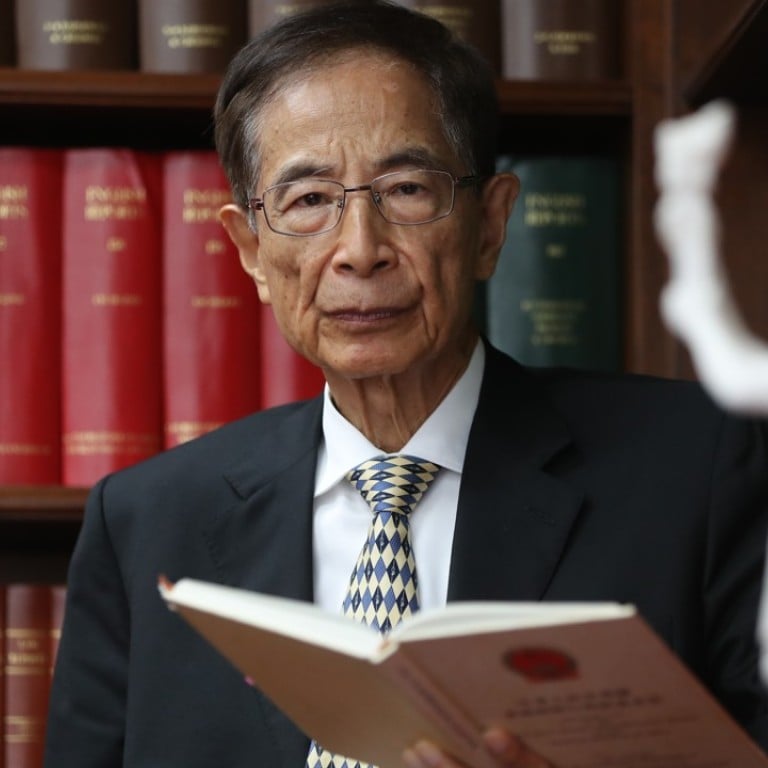
Exclusive | Now wary of Beijing, Hong Kong democrats Albert Ho and Martin Lee recall time they were warmly welcomed in mainland China and shared expertise with officials
- Not long after mainland embarked on reform and opening up, pair and other lawyers would meet officials and scholars eager to learn about rule of law
Lawyer Albert Ho Chun-yan keeps a souvenir from more than three decades ago in his office. The ceramic plate decorated with scenic pictures bears his name, the year 1985, and the words: “Guangdong province’s high-level study on modern economic management.”
It is a reminder of the days in the 1980s when he, together with fellow lawyer and pan-democrat Martin Lee Chu-ming and other Hong Kong professionals travelled many times across the border to meet mid-ranking mainland Chinese officials and scholars eager to learn about the rule of law and foreign trade law.
Those trips were highly successful and organised by pro-Beijing businessman Paul Yip Kwok-wah.
What changed for Ho and Lee was the June 1989 Tiananmen Square incident, when Beijing cracked down on student-led pro-democracy protesters, leaving an untold number dead. There has been no official death toll, but hundreds, perhaps more than 1,000, died.
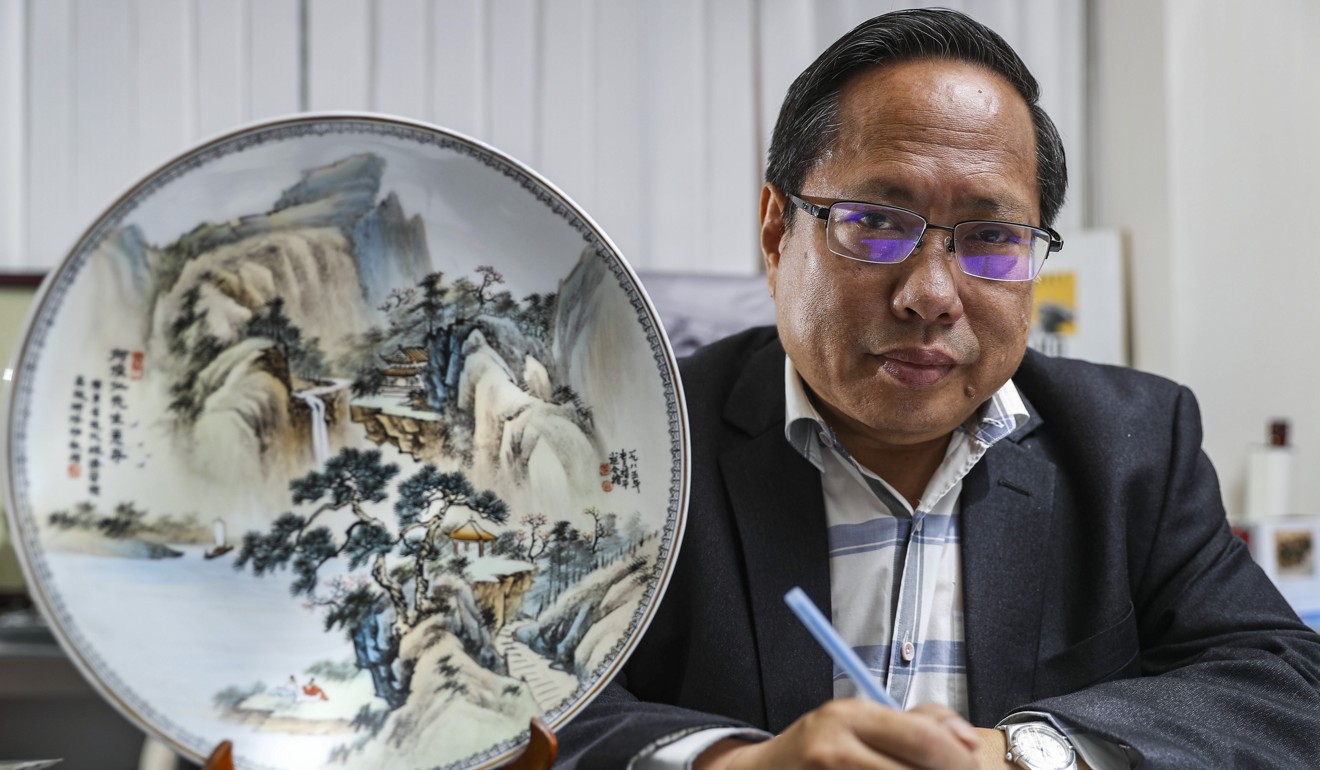
Lee and Ho, who had openly supported the student protesters, soon found themselves barred from going to the mainland for the next two decades.
Recalling his trips to Shenzhen University to share his expertise soon after the mainland embarked on its reforms and opening up, Ho said: “There were talks on banking, airport and hospital management. I talked about foreign trade law.”
He remembers with a chuckle the day then Shenzhen mayor Liang Xiang told the group there was no need for border formalities.
“They held a welcoming party and Liang came to pick us up by car,” he recalled. “They asked us to just come over without going through customs clearance. You know how the mainlanders could get things done.”
All went well until his group was returning to Hong Kong that night, and ended up being questioned at the checkpoint because they had no documentation for entering the mainland. Liang had to come to their aid.
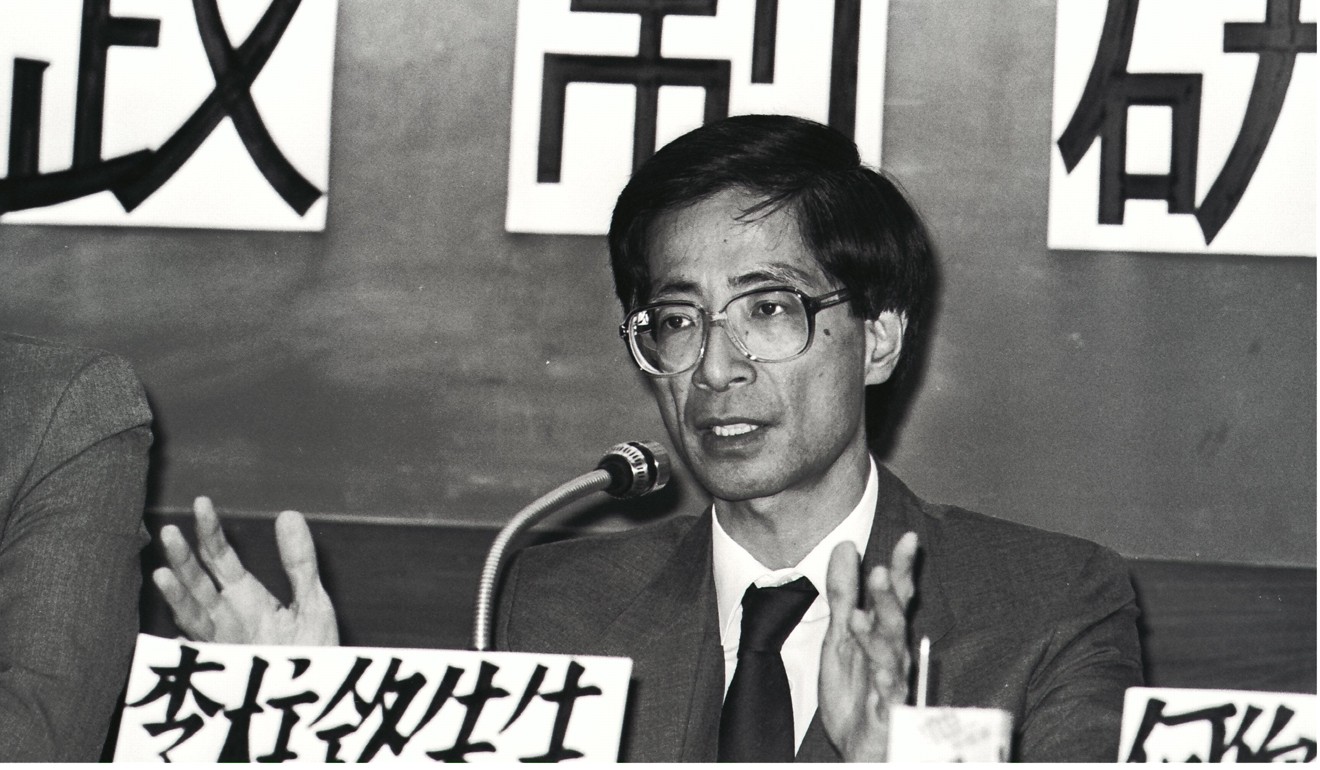
Ho said Beijing had been on good terms with Hong Kong’s pan-democrats through the 1980s in the run-up to the 1997 handover of the city from Britain to China.
“We really felt their sincerity in moving towards reform and opening up the country. That was one of the reasons we supported the handover,” Ho said.
Similarly, Lee went across the border to talk about the rule of law, and he found mainland officials were keen to learn because they had no access to such lectures.
“I spoke to them with examples to explain the idea that everyone is equal before the law, no matter if one is a senior official or an ordinary citizen,” he said.
As China boomed, businessman Paul Yip expanded from hotels to schools
He remembers telling them about two senior legal officials involved in court cases.
A High Court judge was charged with drink driving and Hong Kong’s then attorney general Michael Thomas was charged with driving without a local licence. The judge was acquitted after an inquiry while Thomas pleaded guilty.
“I told them that was how the legal system had been running in Hong Kong. That was the rule of law,” he said.
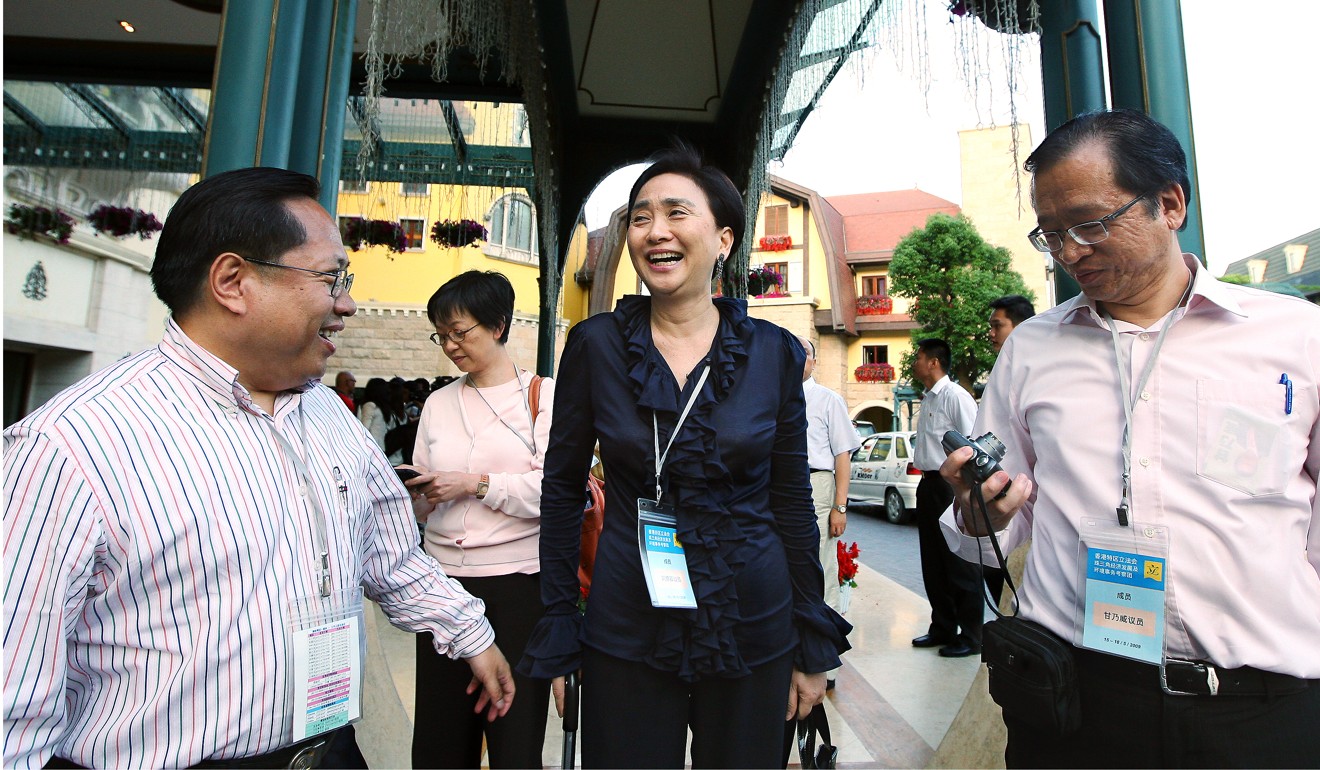
But after the Tiananmen Square incident, he quit the drafting team.
To be fair, Beijing has a high level of tolerance for Hong Kong already
They were disappointed to see Beijing gradually tighten its grip over the city in the 20 years after Hong Kong’s handover.
To Ho, Beijing’s position hardened after two pro-democracy protests: the July 1 march in 2003 when half a million people took to the streets to oppose the government’s proposed national security bill, and the 2014 Occupy movement which saw protesters bring parts of the city’s business areas to a standstill for 79 days.
Even before the city’s High Court could decide on the matter, China’s top legislative body, the National People’s Congress Standing Committee, ruled that lawmakers who did not read out their oaths precisely should be regarded as declining to take their oath.
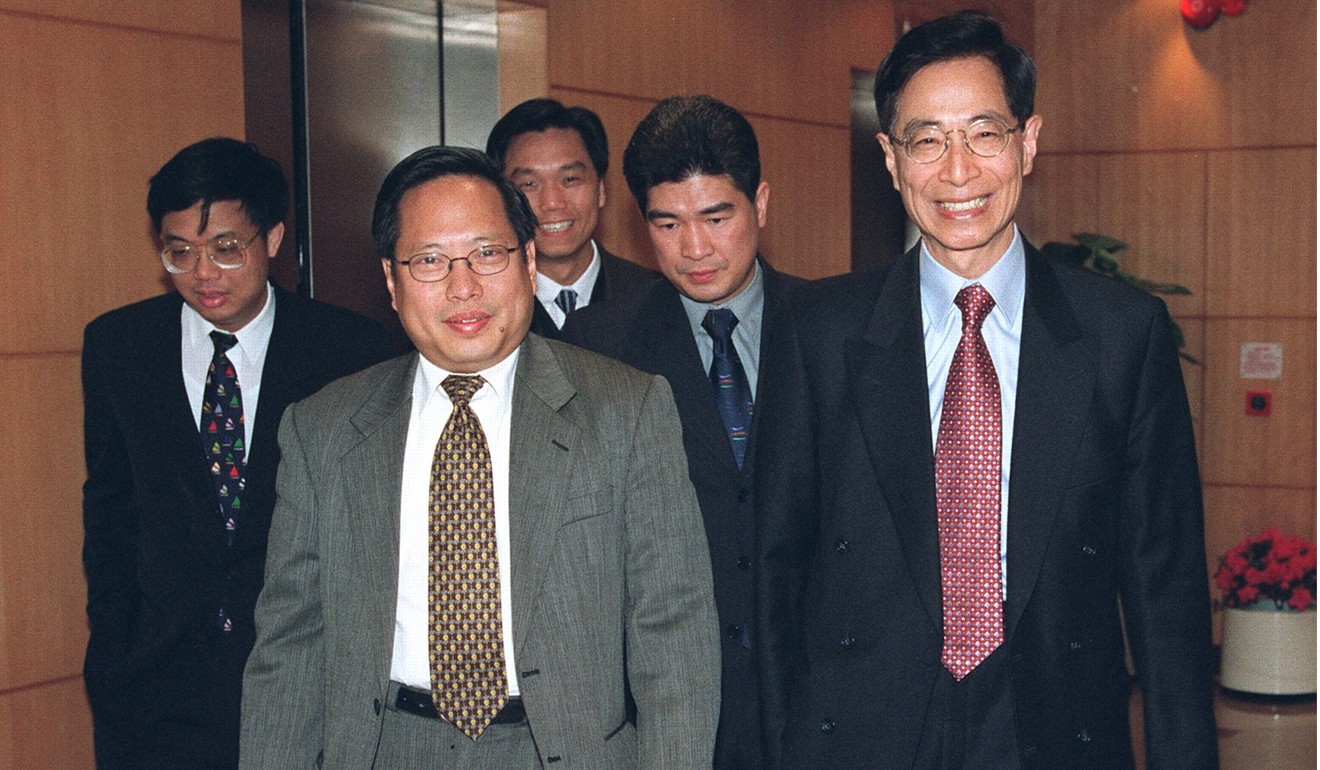
Lee said he was saddened that the rule of law, once the city’s pride, was being encroached upon by Beijing.
He felt Beijing was no longer as concerned as before about international pressure or Hong Kong’s reputation. “The Communist Party has total authority … nobody can stop them from killing Hong Kong,” he said.
Ho remains more optimistic, pinning his hopes on Hong Kong’s strategic role to the country.
“To be fair, Beijing has a high level of tolerance for Hong Kong already,” he said. “It is because they know that such freedoms are inseparable to our judicial and financial systems, and the entire society.”
How Hong Kong know-how helped mainland on road to success
He said Hong Kong remained an “irreplaceable window” to the world for China, as well as a capital formation platform for mainland companies and a regional yuan settlement centre.
While he believed Beijing would retain Hong Kong’s uniqueness in the national interest, Ho did not rule out “local agents”, including officials from Beijing’s liaison office, causing waves from time to time.
The judicial system has survived despite coming under pressure, and the international community has also helped by keeping an eye on Hong Kong’s freedoms.
“We have to be vigilant and safeguard our values,” Ho said.
Inside China podcast: 40 years of economic ‘reform and opening up’

